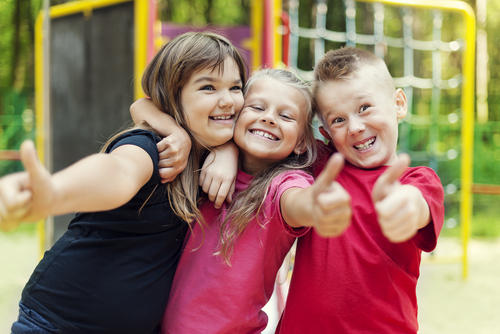 Being grateful is more than just saying thank-you and it is important that you teach your child to be gracious. Your little one will benefit by gaining a sense of perspective which will help them improve relationships with others.
Being grateful is more than just saying thank-you and it is important that you teach your child to be gracious. Your little one will benefit by gaining a sense of perspective which will help them improve relationships with others.
Gratitude is about teaching your child to acknowledge the positive aspects of their life.
Start at home
When you are sitting at the dinner table encourage everyone to talk about what they are thankful for. This can help your little one to form a positive frame of mind and be grateful for what they have.
Be grateful yourself
Children look to their parents to be their role model so it is important that you practice what you peach; remember, actions speak louder than words. Tell them things that you are grateful for on a daily basis. Try to say thank you as often as you can – your child will be more inclined to say it if they see you do it.
Don’t spoil them with too many material things
Buying your children treats can be a great way to reward them for a job well done. However, it is important that you don’t buy your little one everything that they demand as they may lose their respect for possessions.
Send thank you cards
Encourage your child to write thank you cards when they receive a gift or when someone does something nice for them. Not only will it teach them to be grateful but it may also make the recipient’s day.
Encourage them to help others
Encouraging your youngster to help others will mean they will be less likely to take things for granted. Get them to visit an elderly neighbour’s house or make “giving back” a monthly family activity.
Keep an eye out for teachable opportunities
Rather than sitting down with your child to teach them to be gracious, use everyday moments instead. Connecting real-life situations will help your little one understand gratitude more easily and the concept is more likely to stick.



